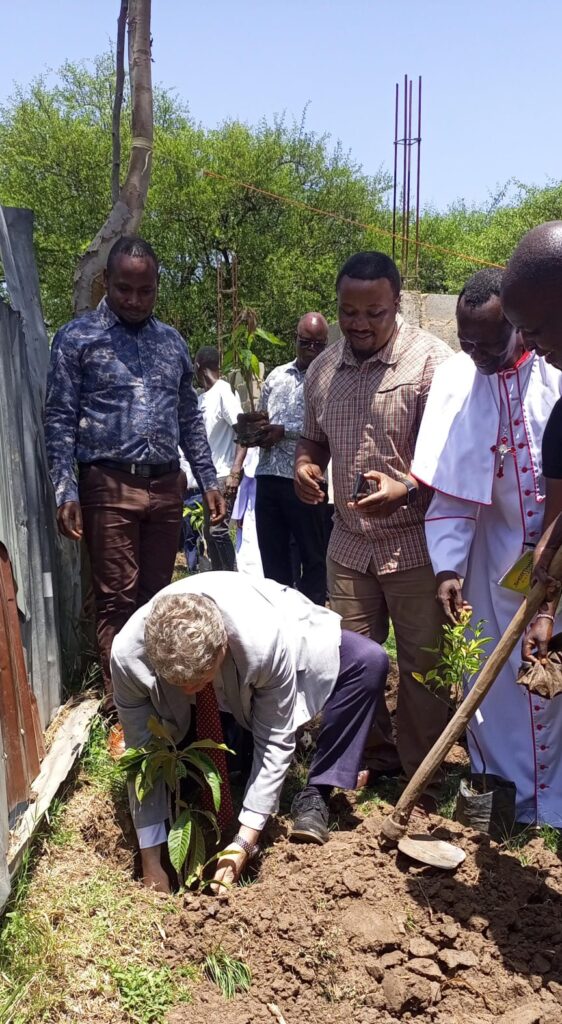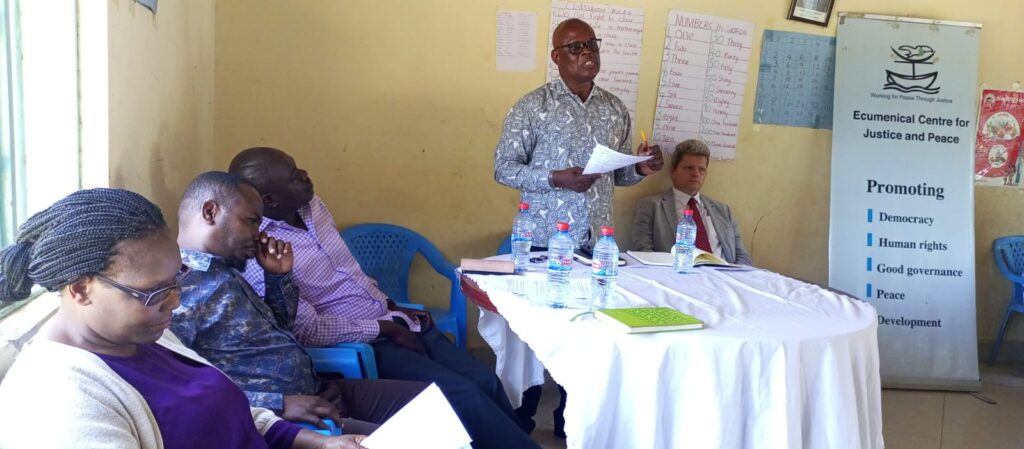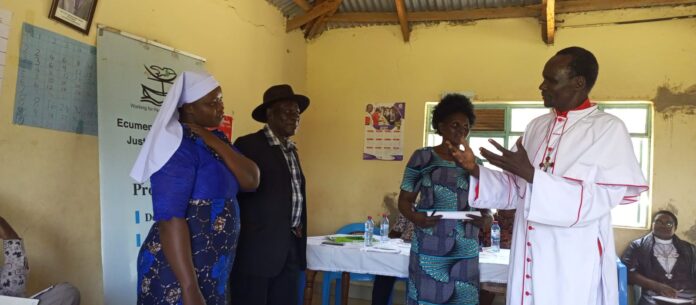In what looks like a classroom set-up, Cardinal Elias Komenya introduces his topic of the day by randomly asking attendees their favourite types of fruits.
“Just stand up and come to the front,” Cardinal Komenya directs them to the front of the ‘classroom’.
The three are then allowed time to explain their understanding of Climate Change in respect to their favourite fruit trees.
And for over three hours, the debate moves from sharing experiences on local manifestations of impacts of Climate Change, with experts and other players putting these experiences into perspective.
Climate Change is at our doorstep. Ours is to try to see how we can work with the available governance systems to find viable solutions
ECJP Executive Director Ruth Masiime
This has become common, through the Civic Education and Engagement Program conducted by the Ecumenical Centre for Justice and Peace (ECJP).
Cardinal Komenya of Legio Maria of Africa Church is the Kisumu County Coordinator for ECJP, a Civil Society Organization Network strengthening youth engagement on social, economic and political affairs for enhanced public participation.
Today, the team has congregated at The Lela Parish Anglican Church of Kenya in Kisumu West.
The gathering has brought together members of the ECJP, the county government, the national government, the community, and other agencies involved in environmental protection.
“How many of you have planted a tree in the last one month?” Cardinal Komenya posses the question to the gathering.

Sharing local experiences
The discussions uses local experiences of the communities to explain the impacts of Climate Change on the health, environment, food security, as well as conflicts, both at the household and community level.
Once the class sessions are over, the attendees move to the field where they plant trees and commit to care for them.
“When we come back here, we want to see how each of us have cared for their trees,” he said.
According to Komenya, ECJP embraced the model following reports of lack of engagement of the local communities on issues of Climate Change.
“There is a notion that issues of Climate Change are only discussed in high end hotels and they remain there. We want to move this debate to the people’s doorstep,” he says.
ECJP Executive Director Ruth Masiime noted that this program is aimed at ensuring that local communities are part of the solution of the impacts of Climate Change.
“Climate Change is at our doorstep. Ours is to try to see how we can work with the available governance systems to find viable solutions,” she said.
The ECJP project is supported by Hanns Seidel Foundation, a German based research foundation.
Daniel Seiberlin, the Foundaion’s Kenya Resident Representative who attended the ECJP forum in Kisumu appreciated ECJP’s model of engagement, saying it helps with creating structures for responding to issues of Climate Change.
“Reports show that 10 per cent of Kenya’s economy is vanishing due to impacts of Climate Change, and those who feel the greatest impacts are these people in the communities,” said Daniel.
He said that despite existence of robust strategies targeting responses to the impacts of Climate Change, the implementation remains low due to lack of structures to absorb resources allocated for such interventions.
“Discussions at the global stages must now come down to the villages. People must know what trees to plant, how to plant them, and where, how to handle solid wastes, among other issues around Climate Change,” he said.

County Director of Environment and Climate Change Martin Oloo noted that environmental issues start at the household levels, hence need for more of such engagements.
“We have three main Gog-given natural resources; air, water and soil. We have to know how to protect them for our own benefits,” he said.
According to Nyanza Regional Manager for the National Cohesion and Integration Commission (NCIC), some of the conflicts the commission is dealing with are associated to Climate Change.
Due to Climate Change, pasture and water become scarce, forcing communities to fight for the limited resources, hence tribal conflicts.
“This is a clear indication that Climate Change has an impact on peace and justice. We must therefore strive to ensure the peace starts with us in our households and environments,” he said.
Central Kisumu Ward member of County Assembly Zack Okoyo noted that the county government has committed to empower Climate Change Committees from the local levels to escalate debate and response by communities.
“As an assembly, we have come up with regulations for the operationalization of the committees, and we want to see such discussions intensified,” he said.


